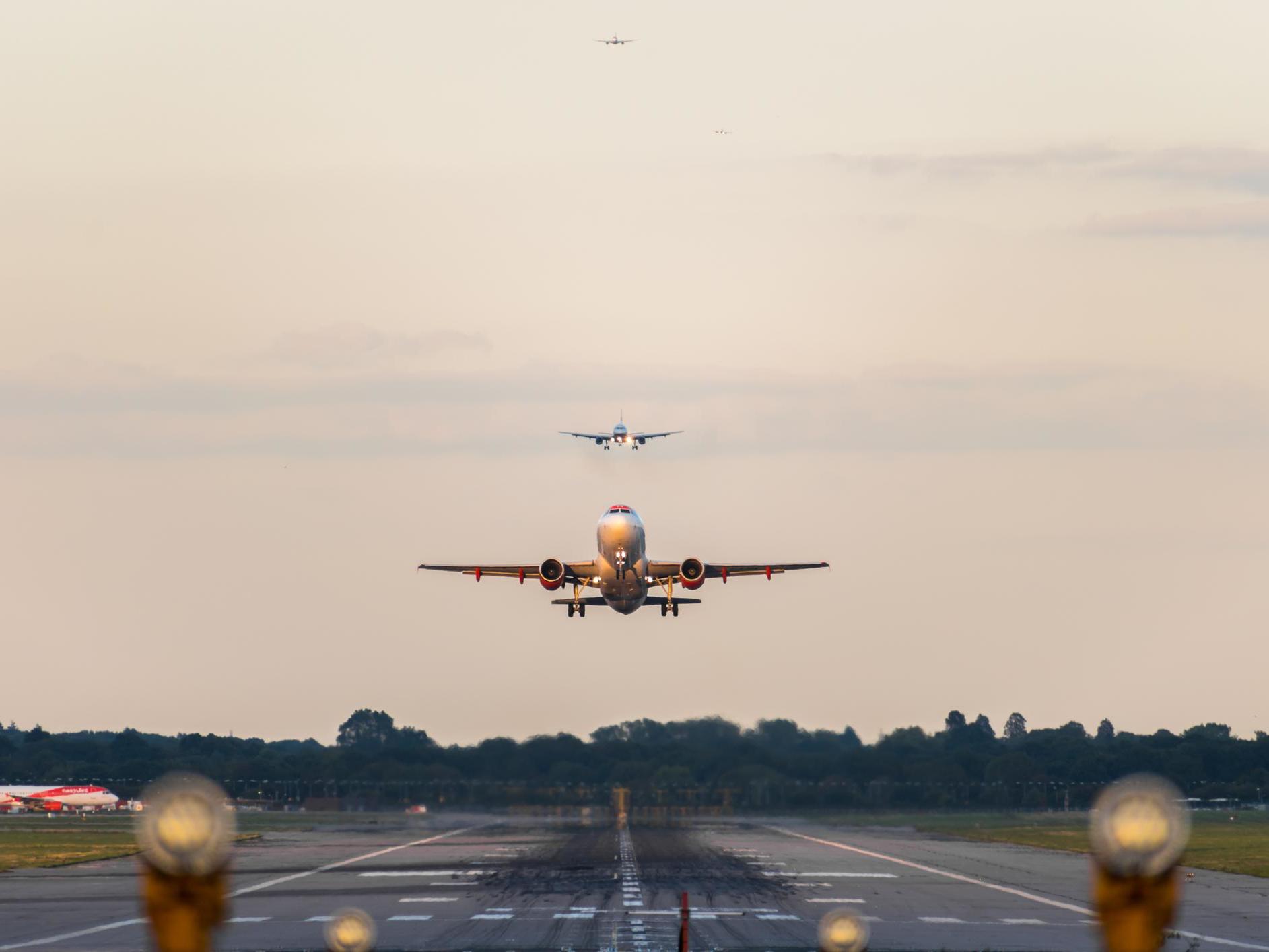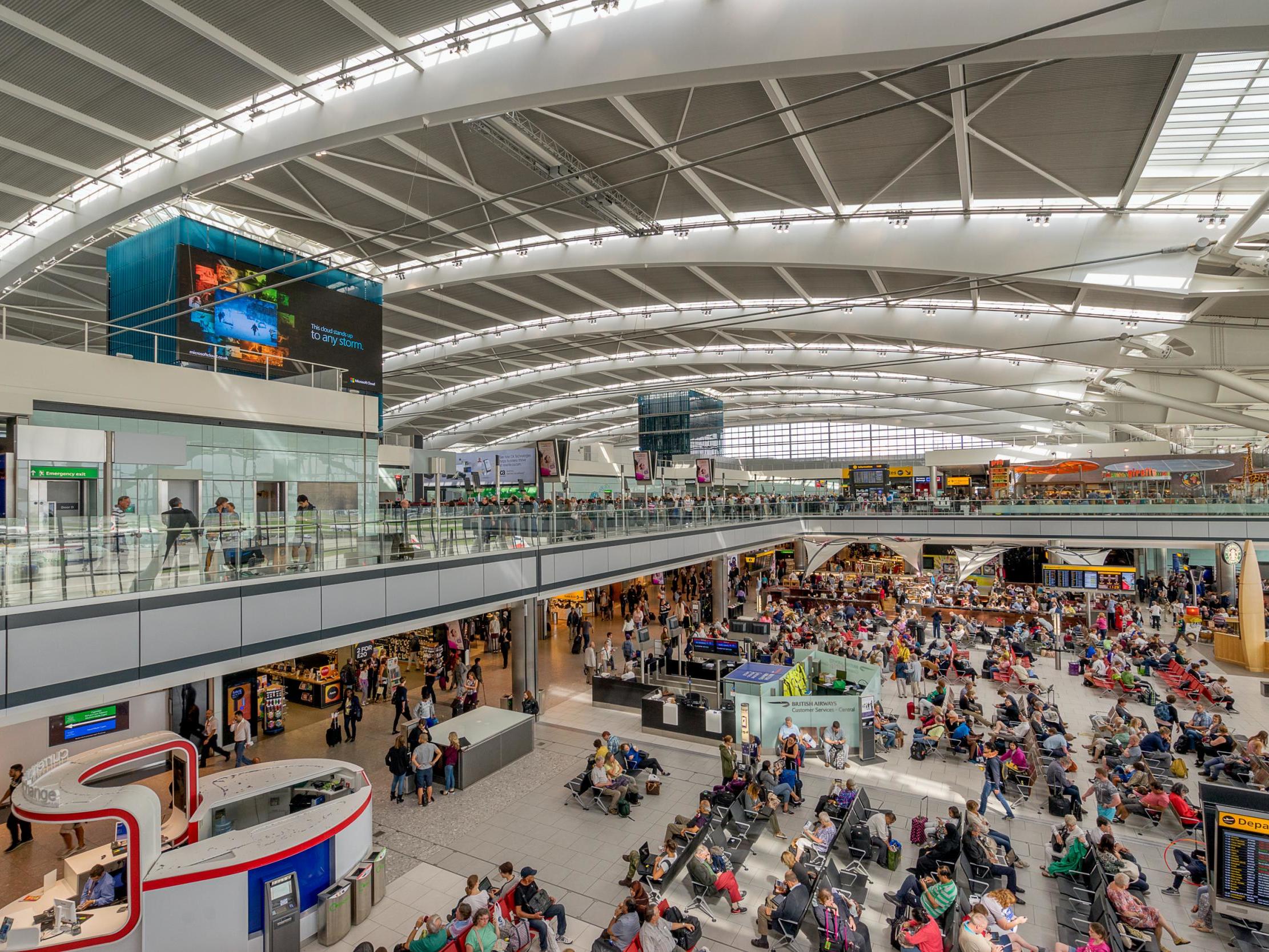Seating shambles, bungled baggage and a train ride to the Rugby World Cup in Japan
Got a question? Our expert, Simon Calder, can help


Q On 10 July, my wife and I were stranded at Jersey airport. Our flight to Gatwick due out at 8.50pm was cancelled at about 8pm due to an “air-traffic control system issue” at Gatwick. We arranged accommodation at a local hotel for the night. Later that evening I tried to rebook. The British Airways website had nothing available, but easyJet offered us seats for a flight the following evening, which I booked.
The BA website suggests I telephone for a refund, but I have a travel insurance policy, should I just claim on that?
Mike R
A The failure of air-traffic control at Gatwick on 10 July wrecked the travel plans of thousands of passengers. The world’s busiest runway closed for nearly two hours, causing dozens of diversions and cancellations – including your British Airways flight.
BA was not to blame for the flight being axed, and therefore no cash compensation is due under European air passengers’ rights rules. But those regulations specify an airline’s duty of care when it cancels a departure for any reason.
Starting with the hotel: British Airways is obliged to book a room for you and provide transport there and back. If BA failed to do so, then you can claim the money back from the airline.
Next, British Airways must also get you to your destination “at the earliest opportunity”. One of the many frustrations of the flawed EU regulations is that there is no definition of “earliest opportunity”. Airlines will always seek to fly disrupted passengers on their own planes rather than buying seats on other carriers. But if you can demonstrate that BA had no flights available on the following couple of days, then you should be able to claim any difference between the cost of the easyJet ticket and what you paid for the original flight.
In cases of flight disruption, insurance is rarely relevant – but you might as well check to see if any payment is due for travel delay; some policies pay about £25 for every 12 hours that you are delayed.

Q We have booked a TUI holiday in Ibiza through a travel agent. We didn’t pay extra to reserve seats as we don’t mind where we sit, and are happy to be seated separately during the flight.
We were told we could check in a week ahead. When I tried to do this online, a message said I had to go to the store. So I did that, and they also told me they were unable to do this and we would have to wait until the day of travel and check in at the airport.
I asked why, and was told it was due to a random security check by the airport on that flight. I got no further other than to be told not to worry and there would be a seat. My question is: should I be concerned about seats being available when we arrive at the airport, and is there anything else we could do about it?
Norma K
A Thank you for another reminder of the travel industry’s infinite capacity for talking complete tosh.
First, to put your mind at rest, you will certainly have a seat. Unlike many airlines, TUI Airways does not overbook. Its flights – including yours – are mainly operated for package-holiday passengers, and there is a very low “no-show” rate. It would quickly get very messy if more tickets were sold than there were seats available. And even in the extremely unlikely case that the plane has to be “downsized” (eg for technical reasons), you can rely on the tour operator to come up with a suitable solution.
Next, I am amazed that you were told there would be a random security check by the airport. Not only am I not aware of any such practice, even if I am wrong and there is, I cannot conceive of circumstances in which that would stop you being allocated a seat.
What I imagine is happening is this. Airlines like to sell allocated seats in advance, but there is always a proportion of passengers (including me) who decline to pay and are happy to be allocated whatever is left. It strikes me as reasonable for the airline to wait until the last possible moment – ie at the airport – before making the final seat allocations. Indeed, the carrier could rationally wait until the departure gate.
Keeping seats in reserve gives the airline’s staff leeway to cope with issues that arise – such as emergency exit seats reserved by people who regrettably are not allowed to occupy them, or families who need to sit together but have not paid for specific seats in advance.
Incidentally, I am writing this from a very nice window seat, 15F, on a Wizz Air flight; I find that if, on budget airlines, you check in at a late stage, you always seem to get a decent seat. I hope you have a comfortable flight and a good holiday in Ibiza.

Q You reported on the “baggage belt” problem at Heathrow Terminal 5, which led British Airways to fly hundreds of people without their luggage. I had always thought that it was illegal for airlines to fly passengers and baggage separately. So how can this happen?
Ian T
A On Thursday morning, the comedian Eddie Izzard was one of many passengers caught up in the latest failure of the baggage system at Heathrow Terminal 5. The check-in operation had to be conducted manually, which meant that it became frustratingly slow. With dozens of flights scheduled to leave from the world’s busiest two-runway airport, the decision was taken to dispatch some flights without all the bags on board.
This is standard practice during times of disruption. Airlines would generally prefer to get planes away more or less on time, and sort out the baggage later, than risk the whole operation seizing up. British Airways says: “We’re in contact with those customers and their bags will be put on the next available flight to get them back to them as soon as possible.”
But your question is about the security of such a practice. For decades it has been standard practice to forbid people from checking in a bag and not travelling on the flight. This stems from the Lockerbie bombing in 1988, when a bag containing a bomb was allowed on board a Pan Am Boeing 747. When it exploded over Scotland, 270 people died.
In a situation when the airline, not the passenger, decides which bags can fly and which will be left behind, though, the security assessment is very different. There is no opportunity for a terrorist to control the operation. In addition, every item of baggage is screened individually before being placed in the hold, and the expectation is that any suspicious item will be detected and examined before being allowed on board an aircraft. So overall, the practice is deemed low risk.

Q I’ve got tickets to some Rugby World Cup matches in Japan in October. They are a week apart, in Tokyo and Oita. Having never been to Japan before, we would like to see as much of the country as possible during that week. Where would you recommend visiting and what’s the best way to get around?
James N
A The Japan Rail Pass is made for you. In a relatively large country, this unlimited train travel option is extremely good value. It is valid on the six train operators comprising the Japan Railways Group (and is valid on the Narita Express from Tokyo’s main international airport, and the few remaining sleeper trains). There are a few restrictions about not using the very fastest bullet trains on some routes, and it does not cover private lines. But apart from that you can travel the length and breadth of this fascinating country on trains that look as if they are out of a “What will the future look like?” book from the 1960s. They are also reliable and comfortable.
A one-week pass costs 29,110 yen (£220) in ordinary class, or one-third more in “green class”; while these carriages offer more personal space, I don’t think it is worth the extra cost. To put the value of the rail pass in perspective: it pays for itself on a single round trip on the bullet train between Japan’s two biggest cities, Tokyo and Osaka, which are 345 miles apart. And the Narita Express (N’EX) alone costs £30 return.
Next question: where to go? Take a train from Tokyo to Odawara and change to a train to reach the dramatic and beautiful Hakone national park (annoyingly, you will need to pay a little extra for this private line). Then continue by bullet train to Kyoto, the former imperial capital, which magically retains a serene setting for its temples. The nearby city of Nara, Japan’s first permanent capital, is even more atmospheric.
While Osaka is a fascinating city, on a whistle-stop tour it should be merely a pause between trains before continuing to Hiroshima. The location hit by the first atomic bomb dropped in the Second World War has become a shrine to peace.
Nagasaki, which was also the target of an American A-bomb, is a dramatically located city that was Japan’s main window on the world for centuries.
In October, this is also one of the best places in Japan for exploring the great outdoors with some hiking or biking. I am not sure how you have sorted out your flights: Oita is close to Fukuoka, which may be your departure point on an “open jaw” flight itinerary. But even if you have to return to Tokyo, a bullet train will get you back to the capital in about eight hours.
Email your question to s@hols.tv or tweet @SimonCalder
Join our commenting forum
Join thought-provoking conversations, follow other Independent readers and see their replies
Comments
Bookmark popover
Removed from bookmarks